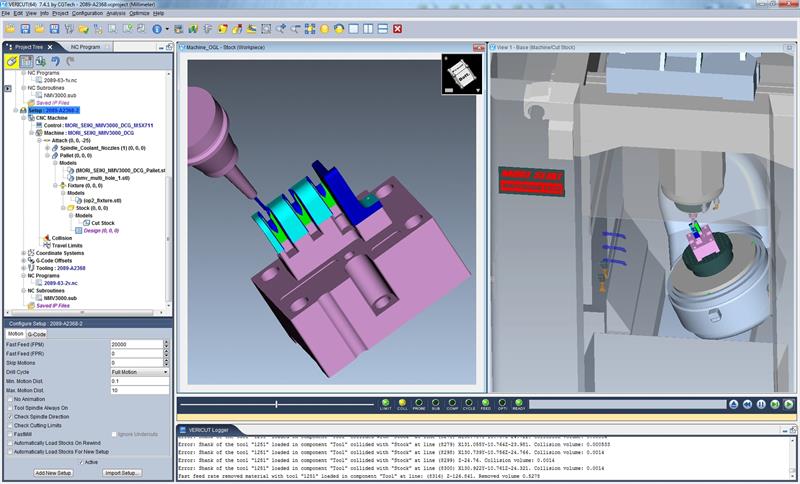Recently, RE Thompson installed an interface between Vericut and the company’s CADCAM software package, Pro/Engineer, now called PTC Creo (Root Solutions, 01954 288288). Doing so provides simulation functionality that allows Vericut to start within the CADCAM environment and create a project file that also includes all of the tooling and fixturing, according to production engineer Patricia Hunt. She adds: “Before, we had a library of tools to pick from to build up, but now it is all much more efficient when proving out NC programs.”
Since at least 100 live part programs run every week across all the machines, and new parts are being introduced all the time, NC program integrity has been an important success criteria. In fact, the company says it prides itself on a zero defect policy and on-time delivery to meet customer production schedules using Line Side, Just In Time and Kanban manufacturing systems. So, as program changes are all tested in the virtual environment by RE Thompson, there is no shopfloor disruption, with tweaks tried and applied without fear of any negative results.
 Vericut screen shot
Vericut screen shot
Engineers keep a close eye on quality because there is no quality department, says head of sales Matthew Shaw. “Engineers fulfil that role because we believe in a ‘cradle-to-grave’ philosophy, so the engineer that introduces a part will forever be responsible for it, and if any issues arise, it is their job to sort it out. This means we are very quick to react to any customer’s concerns.”
Hunt concludes: “With so many opportunities for errors, the NC programs are never manually written or amended on the shopfloor. Errors eradicated by Vericut include collisions between the machine’s spindle and the workpiece or fixturing, or gouging of the raw material, which could result in a machine tool being out of action. This in turn could lead to a failed delivery or capacity shortage, and neither is acceptable to us.”




